When it comes to city passes and travel cards, it’s usually fairly easy to figure out whether they would be worth it for you or not. For things like the Paris Pass or London Pass, they have a list of the most popular attractions and how much they cost, right there for you to see. The Swiss Travel Pass, however, is shrouded in mystery, or at least it was until I spent several days tracking down all of the prices and benefits.
A great many of the visitors and commenters on my popular page about where to go in Switzerland on a short visit are wondering whether the Swiss Travel Pass is a good deal. Embarrassingly, I’ve always had to answer that I found the pass too confusing to confidently advise people on. Now that has all changed, after literally days of research.
Note: This article was last updated in February, 2024.
Disclosure: This is a reader-supported website and some of the links are affiliate links where a small commission is paid to help keep this site going, but the cost to visitors is the same. The Swiss Travel Pass seems quite expensive at first, so it felt like it might be hard to get your money’s worth out of it. As it turns out, it’s pretty easy to get good value, and it’ll be a good deal for many visitors.
New in 2024
Prices increased an average of 5.9% from 2023 on the Swiss Travel Passes, but the Half Fare Card remains at CHF120, which is where it’s been for many years. Train fares in the country increased by similar percentages so the value is basically unchanged. There were no other notable changes to service or the included attractions and train routes.
>>>Buy the Swiss Travel Pass online
Where to stay in Interlaken and the Lauterbrunnen Valley
Since most people reading this will be visiting the Interlaken area and I get so many questions about it, I decided to write a detailed guide on which area to stay in while visiting this area.
>>>Where to stay in Interlaken or the Lauterbrunnen Valley in Switzerland
I included many huge photos in that post so readers will be able to get a better idea of what each place looks like and they are worth a look by itself.
>>>Lucerne or Interlaken: Which to visit and how long to stay?
The article just above will help you decide on how long to spend in each of Switzerland’s two best tourist areas.
Are you 100% sure where you want to go in Switzerland? This should help
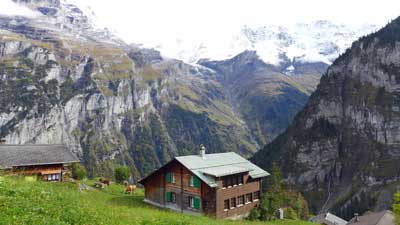
Zurich and Geneva are pleasant but dull. The good news is that Switzerland is packed with amazing sights and none of them are the big cities. If you aren’t 100% locked in yet, please read the article below and I think you’ll enjoy it.
Is the Swiss Travel Pass a good deal? Here's the short version

The bottom line is that the scenery, train journeys, and cable car rides in Switzerland are stunning and not found anywhere else in the world. They are also quite expensive if you pay for them one at a time. So no matter how you visit Switzerland, you are going to be paying quite a bit, or skipping the absolute best things that you’ve come there to see.
With good planning it’s quite easy to get great value out of a Swiss Travel Pass, but it might be a poor choice for those who don’t like to plan ahead. You can easily do a scenic train ride and a cable car in the same day, and still have time to do a scenic hike in the process.
First class or second class? Good news for most people
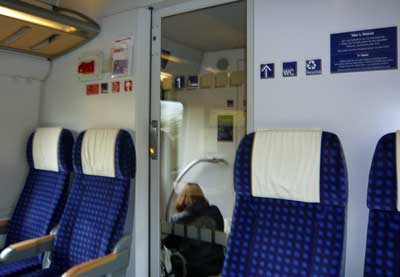
That said, Swiss Trains are literally the nicest in Europe and even the Second Class seats and carriages are nicer and roomier than trains in neighboring countries. The First Class seats are larger and nicer with only 3 across the cabin instead of 4, but honestly Second Class is perfectly comfortable for almost everyone.
Again, First Class on European trains like this is generally popular with business travelers where the company is paying and they need to get work done during the ride, and also senior citizens who don’t want to worry about a carriage full of backpackers. For most of the rest of us, Second Class is more than comfortable enough and the seat width and legroom compare to business-class airline seats. I’m a big and tall guy and I almost always travel in Second because it’s plenty comfortable enough and all the seats arrive at the same time anyway.
The longer you'll be in Switzerland, the better deal a Swiss Travel Pass will be
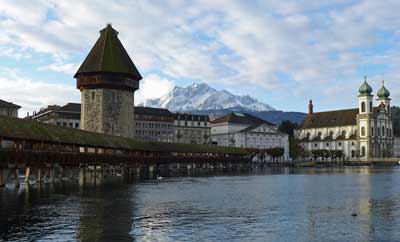
In other words, if you are staying 5 days or fewer, you have to do the math to determine your best option. But if you are spending even 6 or 7 days in Switzerland then the 6-day or 8-day Pass is almost guaranteed to be a great deal and your best choice. Once you have a Swiss Travel Pass you’ll absolutely love the ability to just hop on any train (excellent trains, always on time) and most boats and cable cars without having to worry about the cost. The per-day cost of an 8-day Pass even if you only use 6 of those days is about CHF65, and Switzerland is filled with amazing train rides and boats and cable cars that can get you that much value before noon each day.
Schilthorn (50% discount) and Jungfraujoch (25% discount) are cheaper with a Swiss Travel Pass
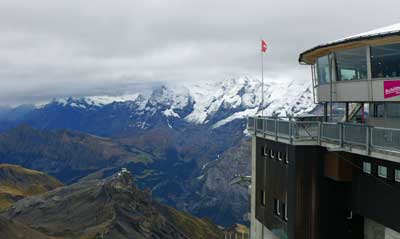
Both of those peak experiences are extraordinary and different from each other. Even so, compared to Jungfraujoch, Schilthorn is also faster and more comfortable on the way up and down. You can enjoy an excellent visit to Schilthorn in 4 hours or so (or a bit longer if you eat at the spinning Piz Gloria restaurant at the top), while a visit to Jungfraujoch requires closer to 6 hours.
NOTE: Schilthorn closes for maintenance for a week or two in late November most years.
Consider the Swiss Half-Fare Card instead
If you AREN’T going to be doing two or more of the long (and expensive) scenic train trips, you will get much better value out of the Swiss Half-Fare Card, which is explained a bit below.
Mt Rigi, near Lucerne, is 100% covered by the Swiss Travel Pass
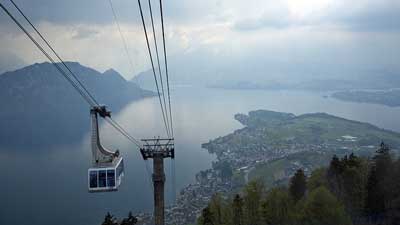
Is a Swiss Travel Pass right for you?
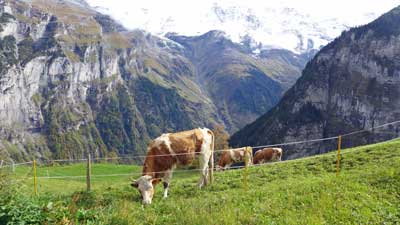
Most people only visit Switzerland for 5 or 6 days at most, so the 3-day and 4-day passes are the ones to focus on. But if you are staying for 8 days or more, those longer passes are almost certainly a great deal for you.
Long story short, if you plan on doing 2 of the more expensive scenic trains and the Jungfraujoch railway or the Schilthorn cable car, then the pass will save you money. Switzerland is expensive, but it’s worth it, and the travel pass can help make it a bit more affordable.
What the Swiss Travel Pass includes
- Free rail travel on normal trains and most scenic trains
- Discounted travel (about 50%) on popular tourist mountain trains
- Discounted travel (about 50%) on popular tourist cable cars
- Free travel on public transport in 75 towns and cities
- Free entry to around 500 museums in Switzerland
The Swiss Travel Pass covers the fare on the most popular scenic and panoramic trains. You can choose a normal seat in a regular carriage for no additional cost, but there is a supplement of CHF8 to CHF49 for a reserved seat in one of the special panorama carriages on these routes.
Prices of the 2024 Swiss Travel Pass
1st Class
- Adult 3-day Pass: CHF389
- Youth (4 to 25) 3-day Pass: 274
- Adult 4-day Pass: 469
- Youth (4 to 25) 4-day Pass: 330
- Adult 6-day Pass: 602
- Youth (4 to 25) 6-day Pass: 424
- Adult 8-day Pass: 655
- Youth (4 to 25) 8-day Pass: 469
- Adult 15-day Pass: 723
- Youth (4 to 25) 15-day Pass: 512
2nd Class
- Adult 3-day Pass: CHF244
- Youth (4 to 25) 3-day Pass: 172
- Adult 4-day Pass: 295
- Youth (16 to 25) 4-day Pass: 209
- Adult 6-day Pass: 379
- Youth (16 to 25) 6-day Pass: 268
- Adult 8-day Pass: 419
- Youth (16 to 25) 8-day Pass: 297
- Adult 15-day Pass: 459
- Youth (16 to 25) 15-day Pass: 328
Swiss Travel Pass Flex
This version costs a bit more, but you don’t have to use the travel days consecutively. It’s a great option for anyone who won’t be taking longer train rides each day.
- Adult 3 Flex days in 1 month (1st Class): CHF445
- Adult 3 Flex days in 1 month (2nd Class): 279
- Adult 4 Flex days in 1 month (1st Class): 539
- Adult 4 Flex days in 1 month (2nd Class): 339
- Adult 6 Flex days in 1 month (1st Class): 644
- Adult 6 Flex days in 1 month (2nd Class): 405
- Adult 8 Flex days in 1 month (1st Class): 697
- Adult 8 Flex days in 1 month (2nd Class): 439
- Adult 15 Flex days in 1 month (1st Class): 755
- Adult 15 Flex days in 1 month (2nd Class): 472
Where to buy the Swiss Travel Pass
The Swiss Half-Fare Card – A better option for many visitors
Far less confusing than the Swiss Travel Pass, you can instead get a Swiss Half-Fare Card, and it will be a better deal for many travelers. The price is lower and it’s much easier to do the math, and the discounts are greater on some things as well.
- Swiss Half-Fare Card for 30 days: Adults – CHF120 or US$129
What you get:
Those who buy the Swiss Half-Fare Card will get 50% discount on all trains, buses, and boats in Switzerland for up to 30 days, as well as 50% off all public transportation in 75 cities and towns.
>>>Buy the Swiss Half-Fare Card
Why the Half-Fare Card is a better deal for many
While the Swiss Travel Pass is a great deal for those doing many of the expensive scenic journeys and mountain sights within a few days, it’s not good value for those who are doing fewer of the expensive trips and/or those who are staying longer. Also, the Swiss Travel Pass only provides a 25% discount on the amazing Jungfraujoch Railway, which costs between CHF120 and CHF224 return depending on your starting point, while the Half-Fare Card provides a 50% discount.
The math is simple as well. You can just add up the cost of the trains, boats, and buses you’ll be taking while in Switzerland, and if the total is more than CHF240 or so, the Half-Fare Card will save you money.
Example itinerary:
- Zurich to Interlaken train (2nd Class): CHF50
- Schilthorn Cable Car: CHF112
- Jungfraujoch railway from Interlaken: CHF205
- Interlaken to Lucerne train (2nd Class): CHF33
- Mt Rigi roundtrip from Lucerne: CHF84
- Engelberg (near Lucerne) to Mt. Titlis Cable Car: CHF92
- Lucerne to Zurich train (2nd Class): CHF25
Total per person: CHF601
Total with Half-Fare Card (including price of card): CHF420.50
It would be tough to do all of those things in 4 days, although it is possible. If you bought a 4-day Swiss Travel Pass here is how it adds up:
4-Day Swiss Travel Pass: CHF259
Supplements for Schilthorn, Jungfraujoch, and Mt. Titlis: CHF203.25
Total cost: CHF462.25
Bottom line on the Swiss Half-Fare Card
Since the Half-Fare Card lasts 30 days and provides a larger discount on Jungfraujoch, it is better value for visitors who want to include that scenic top-of-Europe rail journey on their trip. The discounts also add up more quickly on Schilthorn and Mt. Titlis trips, just to name two examples, and you don’t have to take many longer rail journeys to get value out of the Half-Fare Card.
Swiss Saver Day Pass (A one-day unlimited travel pass)
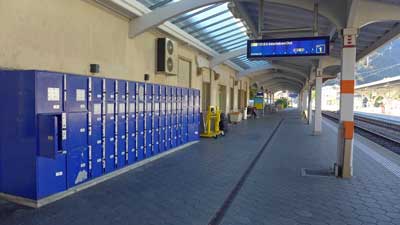
If you buy the Saver Day Pass at least 21 days in advance (and up to 60 days in advance) the 2023 cost is:
- 2nd Class (with Half Fare Card): CHF29
- 1st Class (with Half Fare Card): CHF82
- 2nd Class (with no Half Fare Card): CHF52
- 1st Class (with no Half Fare Card): CHF97
Once you research the normal cost of Swiss train fares you’ll see that the above prices are a very good deal for anyone riding more than 150 kilometers or so in a day. If you are just going, for example, from Zurich to Lucerne or Interlaken on a day, it’ll be cheaper to just buy that ticket individually. But if you are going from Geneva or Montreux to Interlaken or Lucerne then the Saver Day Pass will be much cheaper. Better still, you can use a Saver Day Pass to go from Interlaken to Geneva and back on the same day on the Goldenpass line and returning on the faster train through Bern, and it will still all be included for free.
If you don’t buy a Saver Day Pass at least 14 days in advance it’s more expensive, and if you only buy 1 to 3 days in advance it’s VERY expensive, so the key is to buy early. This is all confusing, but the Saver Day Pass should be a great option for many people only in Switzerland for one to three days.
Popular Swiss panorama scenic trains
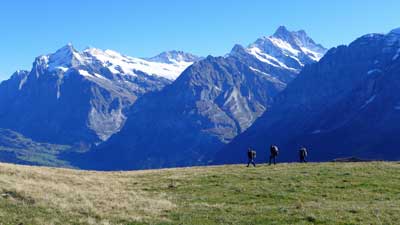
- Glacier Express
- Route: Zermatt to St. Moritz
- Train type: Panorama
- Journey time: 8 hours 3 minutes
- Distance: 291km
- 1st Class fare: CHF272
- 2nd Class fare: CHF159
- Compulsory seat reservation fee: CHF44 or 49
- Supplement for Swiss Pass holders: 13 to 33 for panorama carriage
- Bernina Express
- Route: Chur to Tirano and Lugano
- Train type: Panorama and bus
- Journey time: 4 hours 13 minutes and 3 hours 10 minutes
- Distance: 148km and 90km
- 1st Class fare: CHF113
- 2nd Class fare: CHF66
- Compulsory seat reservation fee: CHF32
- Supplement for Swiss Pass holders: 10 to 14 for panorama carriage
- GoldenPass Line
- Route: Lucerne to Montreaux
- Train type: Panorama
- Journey time: 5 hours 8 minutes
- Distance: 191 km
- Prestige Class fare: CHF131
- 1st Class fare: CHF96
- 2nd Class fare: CHF56
- Supplement for Swiss Pass holders: 8 to 15 for panorama carriage
- Gotthard Panorama Express (formerly Wilhelm Tell Express)
- Route: Lugano or Locarno to Lucerne
- Train type: Panorama and boat
- Journey time: 5 hours 21 minutes
- Distance: 182 km
- 1st Class fare: CHF164
- 2nd Class fare: CHF135
- Supplement for Swiss Pass holders: 39 to 49 for panorama carriage
- Swiss Chocolate Train
- Route: Montreux to Broc round trip
- Train type: Panorama or First Class
- Journey time: X hours X minutes
- Distance: 82 km
- 1st Class fare: CHF99
- 2nd Class fare: 89
- Supplement for Swiss Pass holders: 39
Popular Swiss scenic and theme trains
The scenic trains below are also extremely popular as sightseeing journeys rather than just as transportation, but can be used as both.
- Jungfraujoch round trip
- Route: Interlaken to Jungfraujoch
- Train type: special mountain train
- Journey time: 4 hours 41 minutes, round trip, plus time on top
- Distance: 73 km
- 1st Class fare: N/A
- 2nd Class fare: CHF224
- Supplement for Swiss Pass holders: 147 (so, a saving of CHF77)
- Gornergrat Railway
- Route: Gornergrat Railway
- Train type: Cog railway
- Journey time: 44 minutes return
- Distance: 10 km
- 1st Class fare: N/A
- 2nd Class fare: CHF90
- Supplement for Swiss Pass holders: 45
- Rigi round trip
- Route: Lucerne to Rigi
- Train type: Cog railway
- Journey time: 3 hours 25 minutes, plus time at the top
- Distance: 58 km
- 2nd Class fare: CHF78
- Supplement for Swiss Pass holders: None (this one is free with the pass)
- Mt Rigi Excursion (one-way and walk down)
- Route: Lucerne to Mt Rigi
- Train type: cogwheel train and/or cable car
- Journey time: 45 minutes up
- 1st Class fare: N/A
- 2nd Class fare: 49
- Supplement for Swiss Pass holders: 0
- Lotschberg Mountain Route and Centrovalli
- Route: Bern to Locarno
- Train type: Narrow gauge
- Journey time: 4 hours 40 minutes
- Distance: 212 km
- 1st Class fare: CHF158
- 2nd Class fare: CHF90
- Supplement for Swiss Pass holders: 5
- Jura round trip (Watchmaking Tour)
- Route: Neuchatel through Jura
- Train type: Regular
- Journey time: 3 hours 0 minutes
- Distance: 143 km
- 1st Class fare: CHF168
- 2nd Class fare: CHF108
- Supplement for Swiss Pass holders: 0
- Pre-Alpine Express
- Route: St. Gallen to Lucerne
- Train type: Regular
- Journey time: 2 hours 15 minutes
- Distance: 146 km
- 1st Class fare: CHF83
- 2nd Class fare: CHF47
- Supplement for Swiss Pass holders: 0
- Jura Foot Line
- Route: Basel to Geneva
- Train type: Regular
- Journey time: 2 hours 40 minutes
- Distance: 248 km
- 1st Class fare: CHF132
- 2nd Class fare: CHF75
- Supplement for Swiss Pass holders: 0
Popular Switzerland cable car rides
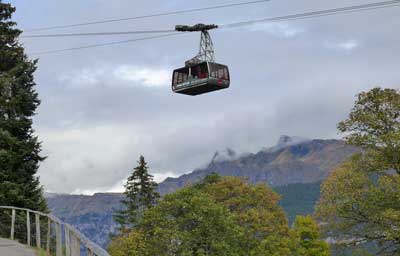
- Schilthorn
- Route: Stechelberg (Lauterbrunnen) to Schilthorn
- Train type: cable car
- Journey time: 1 hour
- 2nd Class fare: CHF108
- Supplement for Swiss Pass holders: 54
- Engelberg to Mt. Titlis cable car
- Route: Engelberg to Mt. Titlis
- Train type: cable car
- 2nd Class fare: CHF96
- Supplement for Swiss Pass holders: 46
The Swiss Travel Pass also includes free museum admission, but…
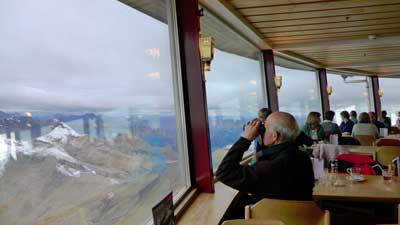
The problem is that the museums are only free on valid travel days, and almost no one would visit more than one or two museums with a Swiss Travel Pass. The trains and cable cars are so expensive that the pass gives very good value to cover those, so you don’t want to waste precious sightseeing time walking through a museum that only costs CHF10 anyway.
In other words, calculate the value of a Swiss Travel Pass on the travel savings only, and if you visit a museum here or there, then great. Most people are better off trying to squeeze in an additional train ride each day, and ignoring the museums. Switzerland is all about the outdoor scenery. As nice as the museums may be, they are not why you are there.
The pass includes free public transport in most Swiss cities
Similar to the free museum part of the offer, it’s best to ignore or minimize the value of free public transportation. It could be helpful in Zurich, but in most other Swiss tourist towns you won’t need much public transport. In fact, in Interlaken, each hotel or hostel guest automatically gets a card for free public transportation within the town (including between the two train stations).
So you might use a ride or two each day on public transport, but that won’t add up to much in terms of value of your Swiss Travel Pass.

Hi Roger,
Thanks again for answering my previous questions!
We are thinking of getting VIP tickets for the Golden Pass Panoramic Train but it is very confusing on how it works. Do you think it is worth traveling the Golden Pass train? If yes, is there a dedicated website to get this? Also, do I have to purchase the HFC in advance to get discounted price for the Golden Pass?
We will be staying in Grindelwald and will be flying out from Geneva, our flight is at 1 p.m. Should we rent a car so that we can reach the airport at least 2 hours before the flight? Or should we just travel by train?
Thanks,
Prachi
Prachi,
This is the best website for the Goldenpass train. It’s definitely one of the most scenic train rides in Europe, but almost every train ride in Switzerland is extremely scenic.
You can buy the Half Fare Card online and use it right away. Actually, you can buy your tickets online and use the option that says you have a Half Fare Card. As long as you actually have the HFC when you climb aboard the train, you’ll be okay. The ticket person will go through the train and they will ask to see your ticket AND your Half Fare Card.
It looks like if you drove from Grindelwald to Geneva Airport it would take about 2.5 hours. But by the time you fill up the fuel tank and return the car, it would obviously be closer to 3 hours. The fastest train take 4 hours 19 minutes and if you left at 06:19 from Grindelwald you’d arrive at the Geneva Airport at 10:38. Swiss trains are also famously punctual so there is probably more risk in driving in possibly being in traffic or something like that. If it was me I’d definitely take the train, but it does look like you could sleep another hour or so if you can find a one-way rental car for that route. Bon voyage. -Roger
Hi Roger,
Thanks for the wonderful analysis. Your post would really help people to plan the swiss trip in efficient manner. I am also planning the same for 1st week of Aug and below is what my itinerary looks like after looking various post and comments:
Aug3: Travel to Geneva and purchase Swiss Pass (3 Day)
Aug 4: Geneva to Interlaken-? Lake Brienz–?Murren-?Gimmelwald–?Lauterbrunnen–?Lucerne. Overnight Stay in Lucerne
Aug 5: Lucerne -? Mt Titlis/Mt. Rigi, Golden Pass train to Montreaux, Montreaux to Zermatt, Metterhorn(if possible)
Aug 6: Zermatt to St. Moritz (Glacier Express).. Sightseeing , St. Moritz to Zurich.
Aug 7: Zurich to Rhine Fall… sightseeing and back to Lyon.
Do we need to pre-reserve the seats in scenic trains..? I checked for Glacier express and it cost 33 CHF. Not sure if this is for Panorama view..? Do I need to pre-reserve night train travel tickets OR with Swiss pass I can simply go and sit..? Please advise for any modifications..
Thanks in Advance
Mitesh
Mitesh,
Thank you. First off, I think August 4 and 5 looks EXTREMELY busy in the sense that you’d have to rush the whole day in order to accomplish the plan, and I’m not sure it would be enjoyable. That aside though, most of the scenic trains that have names have a few departures each day (usually in the morning) when they have special panorama carriages in place of normal ones. You DO need a reservation for a seat in one of those panoramic carriages and the seat supplements are about what you’ve discovered. However, if you have a valid Swiss Travel Pass you can literally just hop aboard any of those trains, including the ones with the panorama carriages, and sit in any other seat at no additional cost. So it’s just the seat reservations for the special cars that cost money. Especially in summer, they do tend to sell out well in advance, so booking early is critical. On the other hand, you can always sit in another seat and just the normal trains are well designed for views anyway. Have a great trip. -Roger
Hi Roger,
I’ve read through your posts – definitely helpful but still a bit confused between all the information out there and confusing rail tables.
My proposed itinerary:
Aug 25 – arrive Zurich, spend one night (not covered by rail pass)
Aug 26 – side trip to Liechtenstein and arrive Luzern
Aug 27 – Mt. Pilatus/hiking around Luzern
Aug 28 – leave midday on the GoldenPass to Interlaken and stay in Gimmelwald
Aug 29 – Jungfraubahn v. Schilthorn (question 1) – or hike somewhere?
Aug 30 – Interlaken to …? (question 2) – would love to see more views and enjoy a restful day
Aug 31 – Need to return to Paris by rail from above end destination; can return a day earlier.
Question 3: I’m still rather confused, if for me, the half pass or the full rail pass makes sense especially since the final day is a bit murky what might be best.
Thank you,
Michael
Michael,
If you have the time and money to do Jungfraujoch or Schilthorn AND it’s clear at the top, I would absolutely choose either of them over a hike. They are arguably Europe’s two best viewpoints. Schilthorn is faster to reach but you have to stand up for an hour in a series of cable cars going up and then again going down. Jungfraujoch is an older train that isn’t too comfortable, but the views are amazing.
If you spring for a Swiss Travel Pass you could go from Interlaken to Zermatt on that day, which is a gorgeous ride. And then you can do one of the cable cars up to see the Matterhorn. But Interlaken itself has many great hikes and viewpoints. You could take the short (and cheap) cable car up above Wengen and then walk back down.
As you say, it depends on how many other longer train rides you’d take. If you added one or two to what you have planned so far then a Swiss Travel Pass will be a better deal. But if you don’t then a Half Fare Card is the better deal. Have a great trip. -Roger
Hi Roger,
Thanks a lot. In our family of four we have 2 adults and 2 teens (16 and 17). Can we still get a family card?
Hi Roger,
Thanks a lot for your help to so many of us. I need your guidance to understand if the ½ card or Swiss Pass is right for family of 4. Thanks in advance.
July. 18 – Reach Zurich around Noon. Zurich city tour, Rhine Falls, Boat ride, overnight in Lucerne
July. 19 – Excursion to Mt. Titlis, Lucerne boat ride, City tour, overnight in Lucerne
July. 20 – Excursion to Jungfrau, and Kandersteg, overnight in Interlaken
July. 21 – Excursion to Schilthorn, Lauterbrunnen Valley hikes, overnight in Interlaken
July. 22 – Excursion to Zermatt. Overnight in Interlaken.
July. 23 – Bern. Overnight in Zurich
July. 24 – Train to Salzburg
Neil,
From the looks of it, you’ll be doing many of the popular mountain peak attractions and not too many longer train rides. As such my best guess is that the Half Fare Card would probably end up saving you more money, but it could be close. With either one you can get a Swiss Family Card, which provides free transportation for children 6 to 15 with a paid adult. And since you get a larger discount on Jungfraujoch with the Half Fare Card compared to a Swiss Travel Pass, I think that is the better choice. Let me know if you have any other questions. -Roger
Thanks a lot roger for answer my numerous queries. You have been instrumental in helping through all my bookings in switzerland and guiding me about what one should be doing. Really appreciate your time and sharing your expert advice. I hae finally purchased half fare card, and my tickets paris – murren, Murren back to basel. Upon printing out the tickets i saw the timings are not mentioned on the local trains for the part of the journey after interlaken to murren. also, no reservations are possible. is it like this all the time. we just find a seat and sit anywhere? Anyway.. once again. thanks a lot for everything.
God Bless!!
Ankit
Thanks Roger, that’s very helpful. We’re spending a week in the Alps in Austria before coming to Switzerland and we’re happy seeing St Moritz, doing the Glacier Express and spending 2 nights in Zermatt before Geneva. My husband visited Geneva years ago and loved it so that’s why we’re ending up there – and we got a really good deal on an apartment for 7 nights so we’re staying longer than we originally planned. A boring but pretty city on a lovely lake sounds fine to me! Day trips to lakeside towns/villages will be perfect. It won’t be our last time in Switzerland – we”l be back.
Thanks again for your help.
Thanks again for taking the time to reply.
Hi Roger
I’ve been doing a lot of research into Switzerland and the Swiss Pass and came across your website which has been hugely helpful – thank you. However, my husband and I are not sure whether to get the Swiss Pass or the half price pass (CHF 120). The problem is that we are in Switzerland for 10 days, so we would either need the 8 days flexible (CHF 420) or the 15 days consecutive (CHF 458).
We will be doing
– day 1 – arrive in St Moritz (we’ve already got travel sorted out for that)
– day 2 – the Glacier Express (we have our reservations) which is CHF 170 per person
– day 3 & 4 – we will spend 2 nights in Zermatt and plan to use the cogwheel train (assuming the weather is clear) which is CHF 90 (half price with Swiss Pass)
– day 5 – we then travel to Geneva by train (CHF 98)
– we then have 7 nights in Geneva. We will need to use the trams as we are a bit out of the centre (CHF 10 for a day pass – we are not staying in a hotel); we also plan to use the lake boats and also do some day trips (for example Geneva to Montreux by train (CHF 31), Montreux to Lausanne and then boat back to Geneva (CHF 45) in one day) – it’s possible we will do other day trips by train
– my husband would like to get the boat to Yvoire – my research suggests that would also be free with the Swiss Pass (but I couldn’t find price)
– on the final day we go to the airport, but I know that is cheap
Adding it all up the 15 day almost seems worth it if we do everything we plan to (as it is CHF 500 for the 15 day ticket plus half price on the cogwheel and over CHF 500 for all of the journeys I’ve listed) – and it means we don’t have to buy any tickets except the Zermatt cogwheel train. I like the idea of the convenience of the Swiss pass – but my husband thinks that it’s probably better getting the half price ticket as he;s worried we won’t do all of the trips we have planned.
How would the half price card work when buying tram fares or all day tickets in Geneva? Is it straightforward?
Do you have any suggestions as to which is better?
Thank you very much for your help.
Jen
Jen,
According to the information on official sites, the Half Fare Card does provide some discount on local public transport, but it says that it MAY be less than 50% on some. I haven’t bought those tickets in Geneva so I’m not sure myself.
Most things ARE included free with the main Swiss Travel Pass. The things that only provide a discount are Jungfraujoch (25% off), Schilthorn (50% off), and some of the other private cable cars and cogwheel trains (usually 50% off). For normal trains and tourist boats and buses, it should cover everything.
Reading your plan my hunch is that getting the 8 Days Flexible Pass would probably be best. If your husband thinks you may not have enough time to do some of those trips because of commitments in Geneva, that’s another story. But if you are mostly there on holiday then I’m confident that you’ll do all of those trips and maybe more.
One interesting thing about the Swiss Rail system is that it’s not only famously punctual, but the normal intercity trains are also very modern and comfortable. It’s just such a pleasure to hop on a train that is always on time, and climb into a comfortable seat, and then see some of the world’s best scenery out the window as you take a quick trip to a place that you’ve been dreaming about. Most European train systems are NOT like that and you often have to deal with late trains and uncomfortable seats and such.
So I’m not sure if that answers your question, but I hope it helps. Geneva is kind of a boring city (on a lovely lake) so it’s an unusual place to base yourself to explore Switzerland. Let me know if you have any other questions. -Roger
Hi Roger,
Thanks a ton for the great article, it certainly helps a lot in planning.
I am planning to visit Switzerland in September end this year with my wife. We are planning to rent an apartment in Brienz, which was recommended to us because of it’s location (surroundings and convenient connections) over Interlaken, Engelberg and Wengen we were earlier not able to decide between. I hope you would also vote for Brienz out of these options.
Now, the next thing for me to decide is the pass- this has become quite confusing with so many options available.
We are planning to visit the following:
1. Jungfraujoch
2. Schilthorn
3. Rhine falls
4. Thun castle
5. Giessbach Falls
6. Rothorn
7. Titlis
8. 1 trip to Bern/ Mountreux/ Lucerne, and
9. If time permits, one day trip to Zermatt/ St. Moritz
As we would be staying in Brienz we would also love to take 1-2 boat trips for leisure.
Now, with all these excursions, which will suit us better- an 8 day consecutive swiss travel pass, a half fare card, or a combination of 4 day bernese oberland regional pass with a 2/3 days tell pass?
Tarun,
I haven’t stayed in Brienz, but I’ve been through it and it looks like it’s close enough to the places you plan on visiting that it should be a handy place to stay. My thoughts on where I think are the best places to stay are in my main article on where to go in Switzerland. I very much prefer to stay in Gimmelwald or another mountain village for the days that I’m exploring the Alps directly around Interlaken, and Gimmelwald is part of the way up the mountain to Schilthorn as well.
As for which pass or passes would be best for you, it’s hard to say without putting it all into a spreadsheet. In other words, I think all of those options would be better than paying as you go, but it’s hard to say which one would save the most. Since you’ll be staying in Brienz, which isn’t too close to any of the things you plan on visiting, it means you’ll be taking several train rides each day. For that reason my hunch is that the full Swiss Travel Pass for 8 days might be your best bet. It only provides for a discount on Schilthorn and Jungfraujoch, and Titlis as well, but all of those train rides you have planned, including Montreux and Zermatt, will add up to a LOT.
A different way of looking at it is that if you spring for the 8-day Swiss Travel Pass up front, you’ll be able to use it aggressively each day because most train rides and boat rides and even some cable car rides will be “free.” And those longer distance train rides like to Montreux and Zermatt are expensive on their own. Again, you’d have to retrieve all of the individual prices and then add them up to be sure, but now I’m pretty confident that the Swiss Travel Pass will save you the most. Bon voyage. -Roger
Hi Roger,
Thanks for your quick reply. Couple of more follow up questions:
– There are some cable car rides as well which we are planning to do.
– We are also planning to do Interlanen – luzeren — Golden Panoroma
– Is there any long scenic train ride which you can recommend considering our itenary ?
Thanks,
Ashish
Ashish,
I’ve mentioned it before, but my opinion is that the special “scenic” trains routes are just a helpful guide for first-time visitors. Amazingly enough, just about every single train ride in Switzerland is very scenic, except for some of the areas in suburban Zurich. So just taking normal trains between the places you want to visit will result in excellent views. And if you are also doing some cable cars, you’ll have a better and closer look at the most beautiful Alpine sights.
The train rides that go THROUGH the Alps are each amazing, including the fast train between Interlaken and Milan. So I recommend just booking trains to the areas you want to visit, and you’ll be thrilled with the views. -Roger